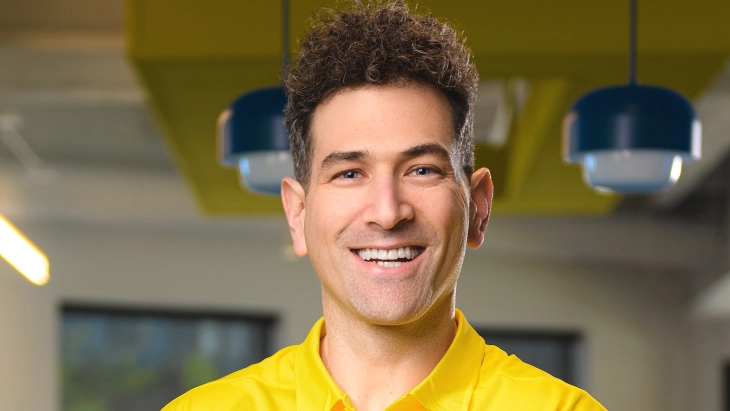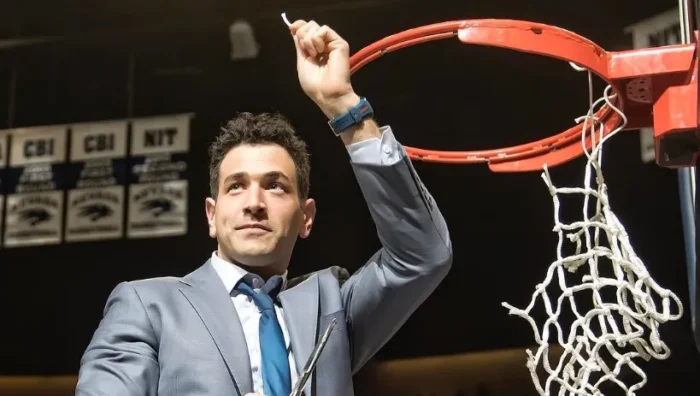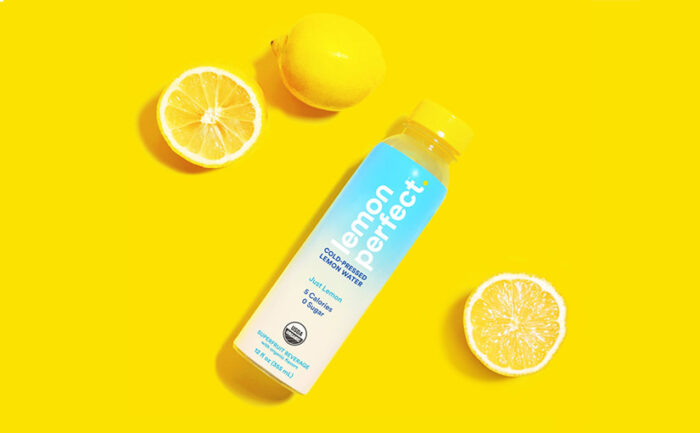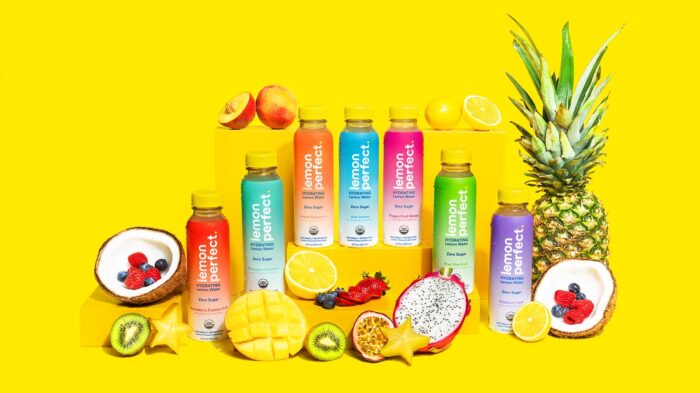
Established companies with a dozen cooks in the management kitchen miss out on the magic of the startup. Startup founders like Yanni Hufnagel create something from nothing. Then they keep building.
Hufnagel founded Lemon Perfect, a fruit-infused enhanced water brand, in 2017. Ultimately, he formulated the 5-calorie, zero-sugar lemon water he calls “the magical intersection of good for you and great flavor.”
But Lemon Perfect is more than just a delicious drink—Hufnagel is cultivating an entire culture around it. A zealous brand ambassador, he began Lemon Perfect after having been committed to squeezing organic lemons into pure water every morning upon waking. With its great taste and brightly colored packaging, Lemon Perfect is disrupting the fast-growing enhanced water category.
“I wanted to create something that had a really big,” he explained on the Rising Coaches Podcast.
His company now headquartered in Atlanta, Hufnagel says Lemon Perfect employees “bleed yellow” from enthusiasm for the brand. His passion has fueled Lemon Perfect to a valuation of more than $100 million and has helped the brand reach the shelves of retailers like Whole Foods, Target, and Publix.
Lemon Perfect comes in seven flavors: Original Lemon, Strawberry Passion Fruit, Dragon Fruit Mango, Pineapple Coconut, Kiwi Star Fruit, Blueberry Açaí, and Peach Raspberry, each containing half a squeezed organic lemon and organic flavors. Organic plant-based sweeteners stevia and erythritol enhance all Lemon Perfect beverages, which are also USDA-certified organic. As Americans prioritize sugar reduction, Lemon Perfect is rapidly gaining market share.
The Lemon Perfect Company recently closed a $31 million Series A financing round. Investors included boldface names in basketball and entertainment: Beyoncé Knowles-Carter, Washington Wizars forward Kyle Kuzma, Trailblazers forward Josh Hart, former NBA forward Channing Frye, former NBA guard/forward Nick “Swaggy P” Young, and Dallas Mavericks guard Spencer Dinwiddie. Hufnagel noted that Beyoncé “is an authentic fan of the brand in a big way. The dots were connected, and we’re just super excited that she’s a part of our story and that she believed enough to invest in the brand and take a really meaningful seat at the table.”
Yanni Hufnagel Started with a Great Story

While Yanni Hufnagel had no beverage industry expertise, he had 10 years of experience as a basketball coach at top-shelf universities, including Harvard and Vanderbilt. Hufnagel learned from these brand-driven entities and the power in telling great stories about these programs when recruiting basketball players.
“At Harvard or Vanderbilt, Cal or Nevada, you’re trying to build a great story,” he said, listing universities where he coached. “Why is Harvard a better option than Princeton or Yale? It’s the same thing for [Lemon Perfect]: we must build a great product and a great brand. Then at least that gives us the potential to build something that can scale.”
Lemon Perfect’s story is the cornerstone of a winning company.
“There was never a product created even in the same realm as Lemon Perfect,” Hufnagel said. “No one ever said, ‘Can we take something made from real fruit and give it the flavor profile that America craves and do it with no sugar?’ I was lucky that we were always able to tell a great story.”
Yanni Hufnagel Stresses the Importance of a Brand’s Aesthetic

Yanni Hufnagel developed Lemon Perfect’s branding to stand out in the crowded enhanced water market that includes other famous players like Bai, Vitaminwater, and Hint. He knew the bottle needed to jibe with the company’s mission, vision, and message.
Unfortunately, he didn’t love the look of the initial Lemon Perfect bottles after they were produced, so he went back to the drawing board with a graphic designer. They worked to create a brand identity and packaging system that more closely represented Hufnagel’s vision. The rebranding and redesign of the bottle was a six-month process, but it was worth it.
To spread metaphoric sunshine, the graphic designer used bold and modern typography colored in a vibrant, cheerful rainbow of tones to reflect the brand’s flavors. The result? Lemon Perfect’s bottle designs express optimism and energy and stand out on supermarket shelves. The cheery aesthetic positions the beverage as a simple, healthy product.
“You have to draw people in through the brand’s visual aesthetic,” Hufnagel said on the Rising Coaches podcast. “Now our bottles allow our consumers to be a walking billboard for the brand. We came out of it with a package that makes people feel good and look good. And it captivates the eye. Our bottle doesn’t look like anything on the shelf that came before us.”
Yanni Hufnagel Maximized the Brand’s Visibility

Initially, Lemon Perfect launched as a keep-refrigerated beverage that fit in the cold distribution category. Because it sat in a refrigerator, there wasn’t an option to build floor displays to attract customers’ attention. Hufnagel soon realized that being kept refrigerated was a hindrance for a company that wanted to scale substantially, so he reformulated Lemon Perfect into a shelf-stable product.
“To win in beverage, you have to be able to build the incremental display space on the floor, especially with how our bottles look,” he said. “We create a fashion show on the floors of retailers across America. But if you live in a refrigerator, you don’t get that. There’s no option to build that incrementality, to attack and get that display.”
Hufnagel hopes to see people sipping Lemon Perfect in every U.S. city, “from Beverly Hills to Baton Rouge, Louisiana.” His reasons spring from a good place.
“I want us to deliver the joy of flavor in every sip,” he said. “I want us to have an impact on the health of the American consumer. The beverage ecosystem is dominated by high-calorie and high-sugar options. There’s nothing in the category with our flavor profile, the freshness of our flavor profile, our nutritional deck, and zero sugar. Lemon Perfect is bottled in 100% recycled plastic, and we’re organic. I think we’ve got magic inside the bottle. When people drink the brand, they come back in a big way, and the data suggests that.”








